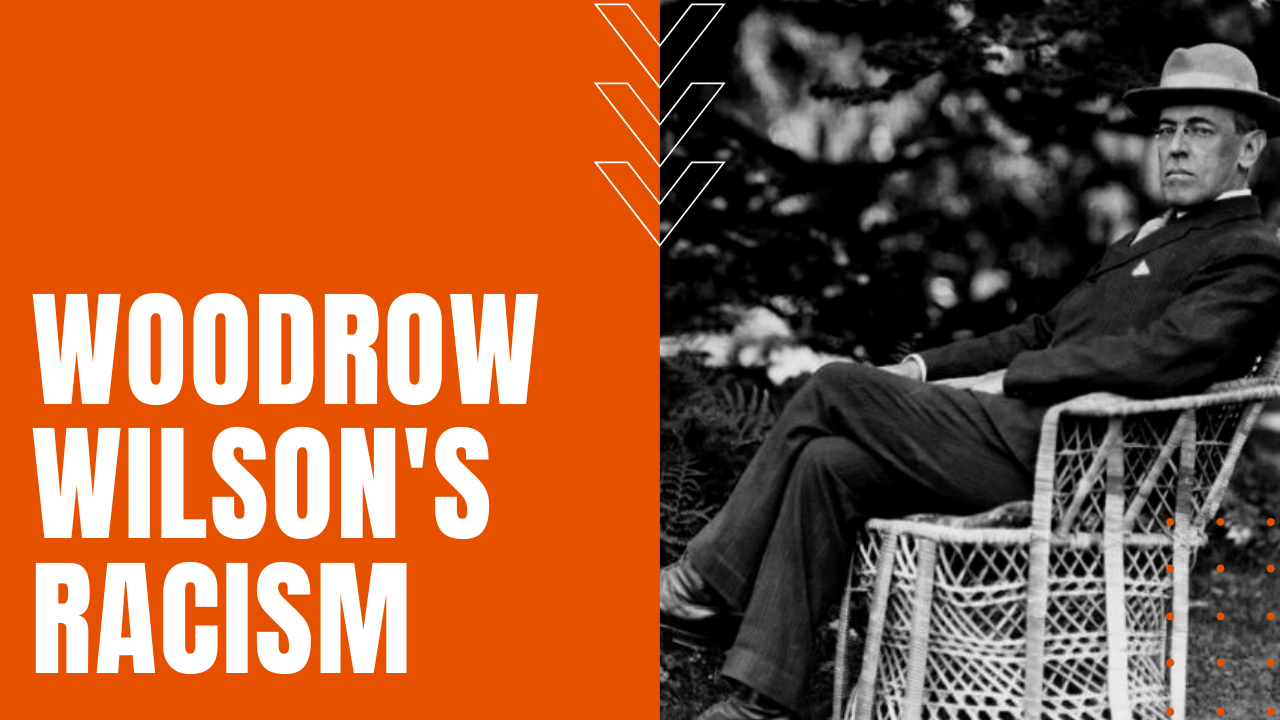Woodrow Wilson’s Racism

While Woodrow Wilson was lauded by most Americans for his leadership during the First World War, as well as his reforms for American business and labor, his upbringing in antebellum Virginia tainted his views on race and segregation, which followed him all the way to the White House.
Wilson on Slavery
For instance, in his five-volume history series, A History of the American People, his written views on the institution of slavery adheres to what historians have called a lost cause narrative of the antebellum South, insisting that slavery was a gentle patrician affair, while recasting the Civil War as an issue of states’ rights instead of slavery.
Post-Civil War Segregation
His recorded views on Post-Civil War Reconstruction further illuminate his racist bent, insisting that Reconstruction placed southern white men under “the intolerable burden of governments sustained by the votes of ignorant negroes,” while casting the Ku Klux Klan as “an ‘Invisible Empire of the South,’ bound together in a loose organization to protect the southern country from some of the ugliest hazards of a time of revolution.”
A Segregated White House
When Wilson entered the White House in 1913, he allowed the Southern members of his cabinet to segregate the Treasury, the Post Office, the Bureau of Engraving and Printing, the Navy, the Interior, the Marine Hospital, the War Department and the Government Printing Office, forcing the creation of separate offices, lunchrooms and bathrooms for Black federal employees, at the same time crushing whatever gains African Americans had made since the end of the Civil War.
In a surviving transcript regarding an Oval Office meeting with civil rights activists W.E.B. Du Bois and William Monroe Trotter—whom Wilson angrily threw out of his office in 1914—Wilson argued that
“Segregation is not humiliating, but a benefit, and ought to be so regarded by you gentlemen.”
Woodrow Wilson to W.E.B Du Bois
President Woodrow Wilson’s Legacy Tarnished
Since Wilson’s racist views have surfaced, institutions and politicians have grappled with his legacy. Monmouth University officials in June of 2020 announced their intentions to rename Woodrow Wilson Hall, while after years of protests, Princeton University plans to remove Wilson’s name from its prestigious public policy school announcing that his segregationist sympathies and policies made Wilson an “especially inappropriate namesake.”
The racist policies of Woodrow Wilson were a back sliding disappointment for racial equality in early 20th-century America.
